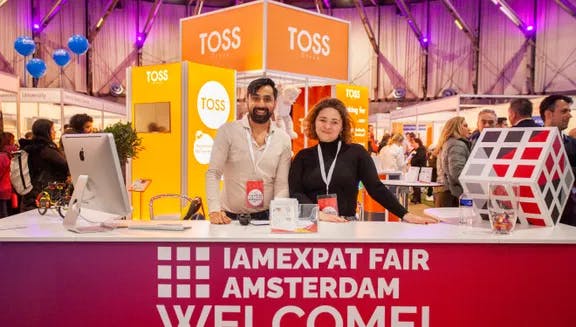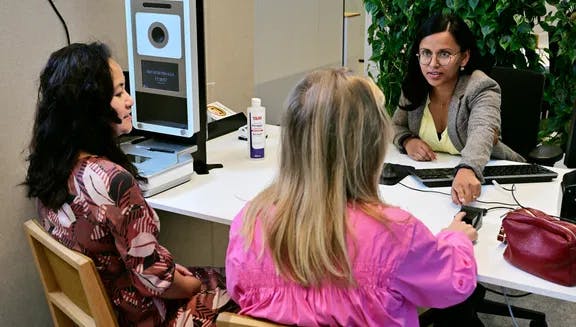
What’s changing in the Netherlands in summer 2024
Minimum wage increases
On 1 July, the legal minimum wage will increase by 3.1%. This means the hourly minimum wage for full-time workers aged 21 and over will rise from €13.27 to €13.68. AOW and WW benefits will increase by the same percentage. The rise follows an earlier change to how the minimum wage is calculated, which came into effect on 1 January 2024. Since that date, the minimum wage is being set at an hourly rate instead of monthly, meaning the rate is the same for everyone.
Housing updates
On 1 July, a new law banning fixed-term tenancy agreements (page in Dutch) is coming into effect. This states that all new rental contracts for homes need to be permanent. Some exemptions apply: temporary rental contracts are still permitted for certain groups including students and those urgently in need of housing. Other specific arrangements such as property guardianship agreements will stay in place, too.
Current fixed-term contracts are not affected by the new rule; they will still end as specified. However, any new or newly extended contracts signed from 1 July onwards will automatically be permanent.
Another change is that from 1 July, landlords are permitted to increase the rent (excluding bills) for rooms, caravans or moorings by a maximum of 5.8%, regardless of the tenant’s income. This was previously capped at 3.1%.
New regulations for childcare organisations
On 1 July 2024, a number of changes to regulations at daycare and out-of-school care organisations (buitenschoolse opvang, BSO) will come into effect. These measures aim to reduce pressures caused by staff shortages. Daycare centres will be permitted to include trainee staff in their lists of ‘familiar faces’ – a requirement for childcare organisations to ensure that each day, each child has at least one nursery teacher in their group that is known to them. For BSO organisations, changes to how the children-staff ratio is calculated means children can be in smaller groups; different locations can be combined on certain days without additional administrative work; and BSOs can employ non-teaching staff for specialist subjects such as music, sports and drama.
Animal welfare: new list of animals permitted as pets
As part of the Dutch government’s animal welfare legislation, a new list specifying which animals may be kept as pets, sold or bred in the Netherlands will come into effect on 1 July. This replaces an earlier list known as positieflijst. The new list (in Dutch) was published by the Ministry of Agriculture, Nature and Food Quality in July 2022. If you keep a pet that’s not on the list, you may keep it for the remainder of its life but you are no longer permitted to use it for breeding. The new list currently only includes mammals; new lists for birds, amphibians and reptiles will be published at a later date. Some exemptions, such as for zookeepers and owners of red deer and fallow deer, apply.
News from Amsterdam’s
To increase much-needed storage capacity at the City’s bicycle depot (Fietsdepot), which stores bikes that have been removed due to being parked improperly, creating an obstacle or dangerous situation, some changes will come into effect on 1 September of this year. The duration for which bicycles are kept for collection by their owners is cut from 6 to 4 weeks. The fees for collection and delivery of bikes increase by €2.50 to €25 for collection and an additional €15 for delivery. Additional new rules and fees apply to businesses such as bike rentals.
Bottle caps to be attached to plastic drink bottles
To reduce litter and improve recycling rates, a new rule for beverage manufacturers states that caps must be attached to plastic bottles and beverage containers. Read more about waste and recycling in Amsterdam and Weesp.
Mandatory truck driving licence mandatory in electric commercial vehicles
From 1 July 2024, businesses using electric vans between 3.5 and 4.25 tons will need a driver with a C1 driving licence. Prior to this, a B driving licence was sufficient for an electric van of that weight. The C1 licence was already required for non-electric vans.
Find out more
You can find more detailed information on the summer and autumn changes that are relevant for businesses on business.gov.nl and the Dutch Government website (in Dutch) and keep updated with news for the City of Amsterdam and Weesp. And if you aren’t already, don’t forget to sign up to the IN Amsterdam newsletters for regular updates on news and events of interest to the international community in the Amsterdam Area.
Related articles

Changes in rules and regulations in the Netherlands for 2024

Easing into life in the Netherlands: the IamExpat Fair

RNI Registrations available again at IN Amsterdam

New Migration Monitor with interactive dashboard

Announcing IN Amsterdam’s new online tool for appointments

New relocation app for international talent

What’s changing in the Netherlands in 2025

Reductions to Dutch 30% tax benefit for foreign workers under review by Senate

New insights into talent attraction and retention
